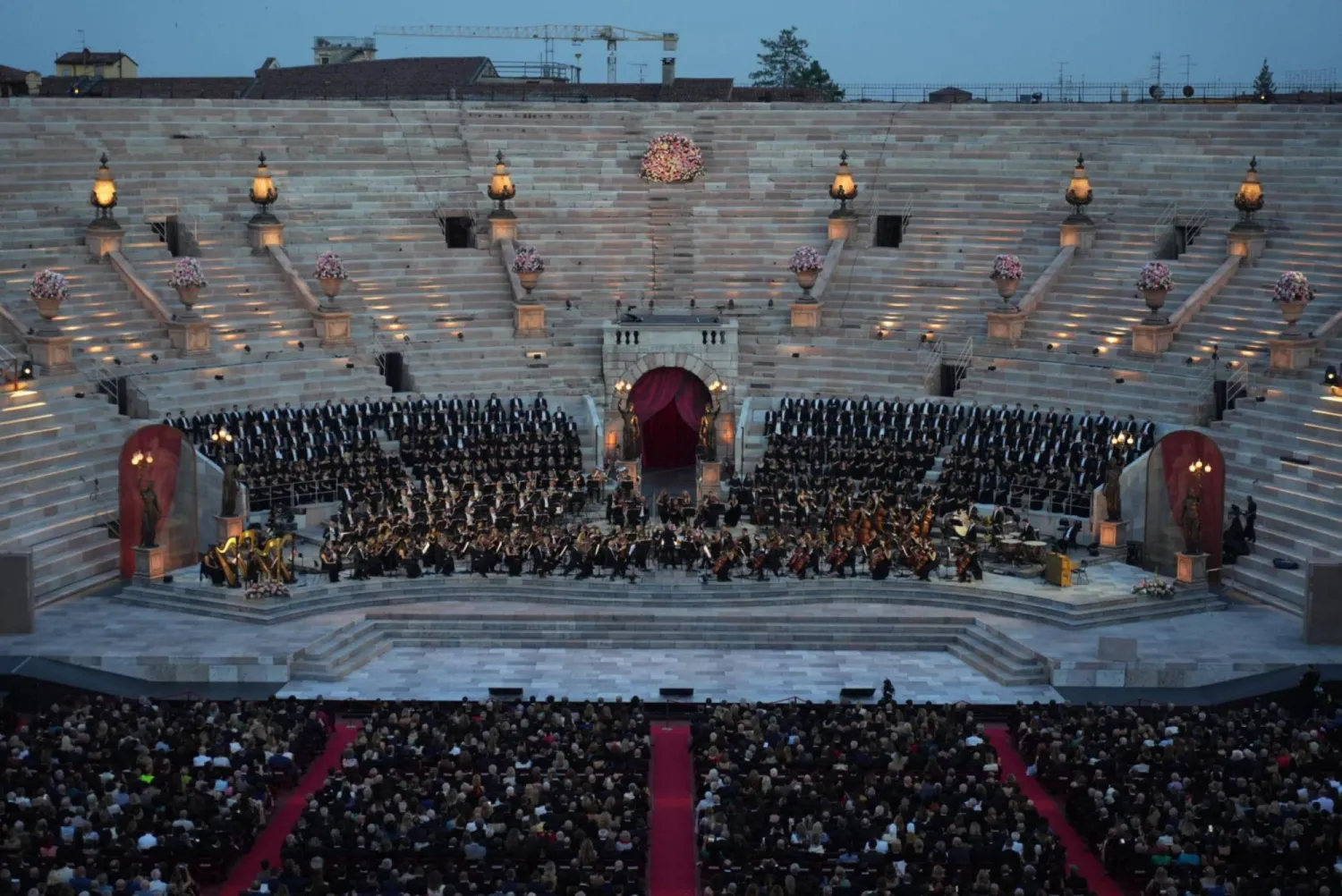Italian Premier Giorgia Meloni joined top political and cultural figures at Verona’s ancient Arena amphitheater Friday night for an open-air celebration of Italian lyric opera’s recognition by UNESCO as a global cultural treasure.
Conductor Riccardo Muti presided over an orchestra of 170 musicians from Italy’s 14 opera houses, joined by over 314 choral singers and a cast of global star opera stars who delivered a greatest hits of Italian opera from Verdi to Puccini, Donizetti to Bellini for an appreciative crowd. La Scala’s two star dancers, Roberto Bolle and Nicoletta Manni, also performed, The Associated Press reported.
“I am here to testify to my enthusiasm and my pride for the fact that Italian lyric opera has received this great recognition,″ Muti told the crowd. “Of course, this is an important moment, because recognition is never a point of arrival but a point of departure.”
“The great masterpieces are our heritage, which we Italians have given to the world,″ Muti added in a prepared message for the television audience.
While UNESCO included Italian opera on its intangible cultural heritage list in December, the Arena proved a fitting place to celebrate the milestone. The ancient stone amphitheater built by the Romans is home to a popular summer opera festival that for generations has made opera accessible to the uninitiated with lavish productions. More than half of the 400,000 spectators at the Arena each summer are foreigners.
“We have brought together the entire Italian opera system to celebrate, together with the great singers of the world,″ said the Arena’s deputy artistic director, Stefano Trespidi. “I am convinced that this evening will bring benefits to the entire music and opera system.”
Joining Italian opera stars like Luca Salsi, Francesco Meli and Vittorio Grigolo were international stars including German tenor Jonas Kaufmann, Australian soprano Jessica Pratt and Peruvian tenor Juan Diego Florez.
Russian soprano Anna Netrebko canceled at the last minute due to illness.









